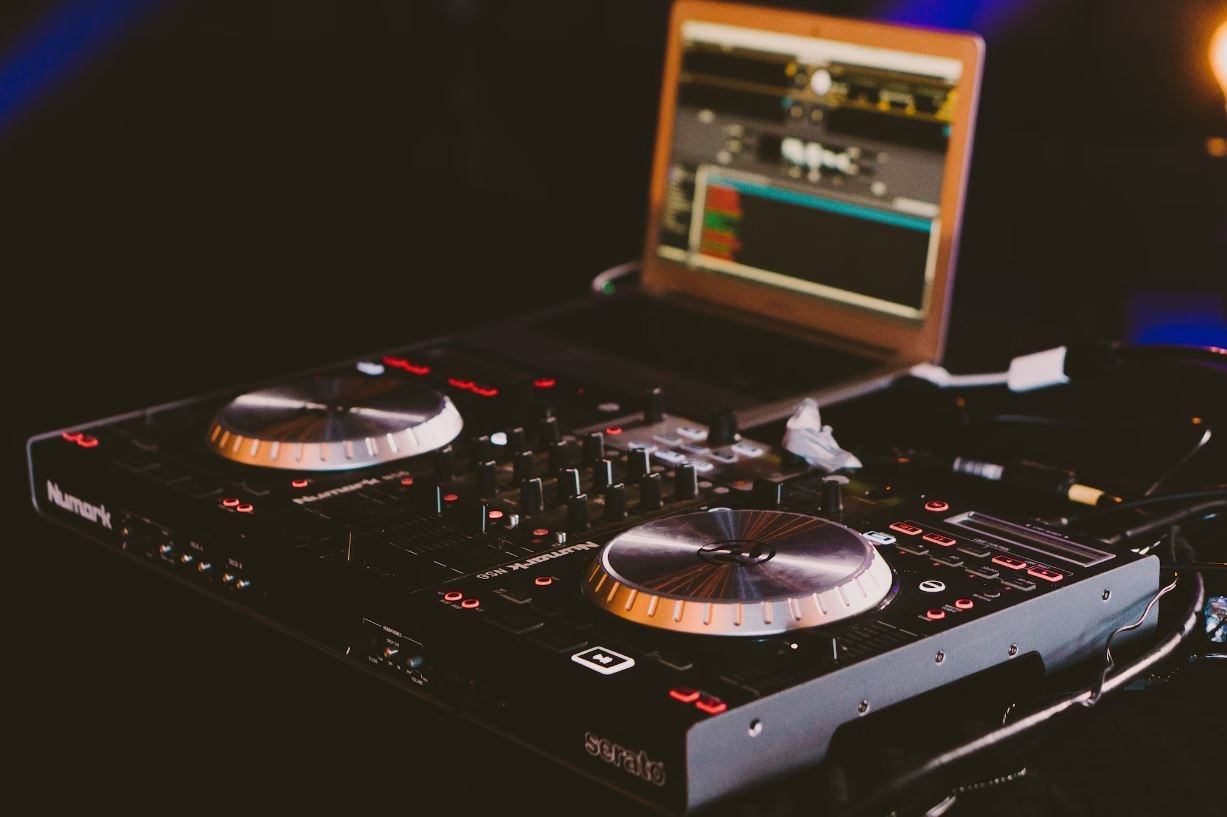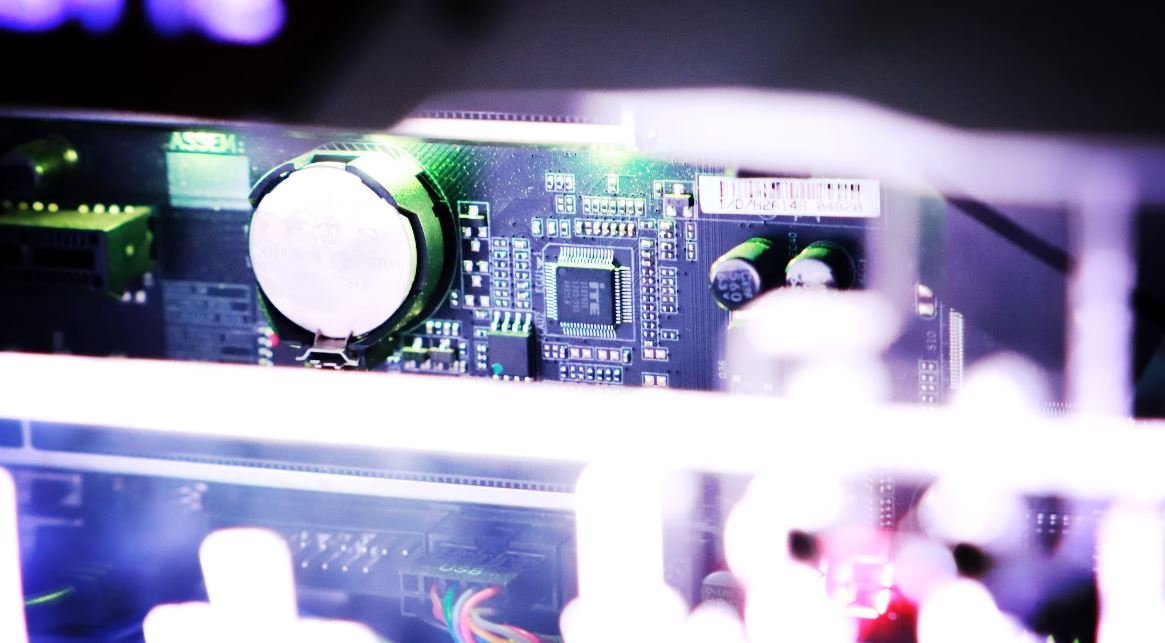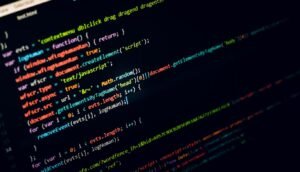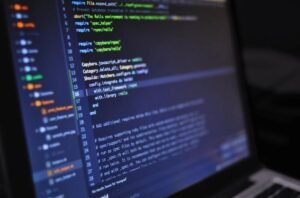AI Created Films
Artificial Intelligence (AI) has made significant advancements in various fields, including the creation of films. With the help of AI technology, directors and filmmakers can now generate scripts, create visual effects, and even generate entire films. This emerging trend has sparked both excitement and concerns among experts and movie enthusiasts alike. In this article, we will explore the impact of AI on the film industry and discuss its potential implications.
Key Takeaways:
- AI is revolutionizing the film industry, allowing for the automation of various aspects of film production.
- AI-generated scripts and storylines are becoming increasingly popular, offering unique narratives and ideas.
- Visual effects generated by AI can significantly reduce production costs and enhance the overall cinematic experience.
- AI-powered film editing algorithms streamline the post-production process, saving time and improving efficiency.
**One of the significant advancements in AI-created films is the ability to generate scripts and storylines**. AI algorithms can analyze vast amounts of data, from existing films to social media trends, to generate compelling narratives. These generated scripts often offer new perspectives and can push the boundaries of creativity. Filmmakers can explore different genres and themes that may have otherwise been overlooked.
**Additionally, AI technology enables the creation of stunning visuals and special effects**. Traditional methods of generating visual effects require extensive resources, such as a dedicated team of animators and complex software. By utilizing AI, filmmakers can achieve realistic and captivating visual effects at a much lower cost. AI algorithms can imitate natural elements, such as fire, water, or even complex 3D models, with incredible accuracy.
The Impact of AI in Film Production
**When it comes to film editing, AI algorithms have proven to be highly efficient**. They can analyze large amounts of footage, identify the best shots, and even generate rough cuts. This not only saves time but also provides filmmakers with alternative perspectives and creative options. Additionally, AI software can seamlessly integrate sound effects, music, and other elements, allowing for a more immersive viewing experience.
**AI-created films have the potential to challenge traditional storytelling techniques**. With the ability to analyze audience preferences and trends, AI algorithms can generate narratives that cater to specific demographics or even individual preferences. This personalized storytelling approach could result in films that resonate more deeply with viewers, potentially revolutionizing the way stories are told.
| Advantages of AI-Created Films | Concerns and Limitations |
|---|---|
|
|
**While AI technology presents exciting opportunities in the film industry, it also raises concerns**. One major concern is the potential job displacement for various roles in film production, such as screenwriters and visual effects artists. However, experts argue that AI-generated content can coexist with human creative input, leading to collaborations and new forms of storytelling.
**Ethical considerations regarding the use of AI in filmmaking have also emerged**. Questions of privacy, data security, and the manipulation of audiences’ emotions through personalized storytelling remain unresolved. As AI technology continues to advance, it is essential for filmmakers and industry professionals to explore ethical frameworks and guidelines to ensure responsible and inclusive use of AI in film production.
Conclusion
AI has considerably impacted the film industry by revolutionizing various aspects of film production, from script generation to visual effects. **The integration of AI algorithms provides new opportunities for creativity and efficiency**. However, this technological advancement also raises concerns about job losses and ethical considerations. As the field of AI-created films continues to evolve, it is crucial for the industry to navigate these challenges while embracing the potential benefits AI brings to the cinematic world.
| Advantages of AI-Created Films |
|---|
|
| Concerns and Limitations |
|

Common Misconceptions
Misconception 1: AI creates movies without human input
- AI technology cannot function without human involvement and guidance.
- AI systems require human programmers to develop the algorithms and models used in filmmaking.
- AI can assist in various processes, but the creative decisions, storytelling, and artistic vision still rely on human input.
Misconception 2: AI-created movies lack emotional depth
- AI can analyze and mimic emotional cues, but it currently lacks true understanding of human emotions.
- While AI systems can generate scenes or dialogue that elicit emotional responses, the depth and authenticity of emotions still originate from human creativity and interpretation.
- AI-generated movies typically require human actors to convey genuine emotions and connect with the audience.
Misconception 3: AI will replace human filmmakers
- AI technology is a tool that can complement human filmmakers and enhance their creative output.
- AI can automate certain production tasks and provide valuable insights to filmmakers, but it cannot replace the unique perspective and artistic decision-making abilities of humans.
- The expertise and experience of human filmmakers will continue to be irreplaceable in the filmmaking process.
Misconception 4: AI films lack originality
- AI can learn from existing films and generate content based on patterns and trends, but it cannot originate entirely new ideas.
- AI-created films often reference existing films or genres, leading to perceived lack of originality.
- Human filmmakers still contribute to the creative process by providing a unique vision and incorporating their personal experiences and ideas into the film.
Misconception 5: AI-created movies are of lower quality
- AI technology can assist in improving the overall quality of films by optimizing certain production aspects and reducing human error.
- While AI-generated content may lack some human nuances, it can still produce visually impressive and engaging films with high production value.
- The quality of an AI-created film depends on the combination of AI assistance and human expertise in the filmmaking process.
- AI technology cannot function without human involvement and guidance.
- AI systems require human programmers to develop the algorithms and models used in filmmaking.
- AI can assist in various processes, but the creative decisions, storytelling, and artistic vision still rely on human input.
Misconception 2: AI-created movies lack emotional depth
- AI can analyze and mimic emotional cues, but it currently lacks true understanding of human emotions.
- While AI systems can generate scenes or dialogue that elicit emotional responses, the depth and authenticity of emotions still originate from human creativity and interpretation.
- AI-generated movies typically require human actors to convey genuine emotions and connect with the audience.
Misconception 3: AI will replace human filmmakers
- AI technology is a tool that can complement human filmmakers and enhance their creative output.
- AI can automate certain production tasks and provide valuable insights to filmmakers, but it cannot replace the unique perspective and artistic decision-making abilities of humans.
- The expertise and experience of human filmmakers will continue to be irreplaceable in the filmmaking process.
Misconception 4: AI films lack originality
- AI can learn from existing films and generate content based on patterns and trends, but it cannot originate entirely new ideas.
- AI-created films often reference existing films or genres, leading to perceived lack of originality.
- Human filmmakers still contribute to the creative process by providing a unique vision and incorporating their personal experiences and ideas into the film.
Misconception 5: AI-created movies are of lower quality
- AI technology can assist in improving the overall quality of films by optimizing certain production aspects and reducing human error.
- While AI-generated content may lack some human nuances, it can still produce visually impressive and engaging films with high production value.
- The quality of an AI-created film depends on the combination of AI assistance and human expertise in the filmmaking process.
- AI can analyze and mimic emotional cues, but it currently lacks true understanding of human emotions.
- While AI systems can generate scenes or dialogue that elicit emotional responses, the depth and authenticity of emotions still originate from human creativity and interpretation.
- AI-generated movies typically require human actors to convey genuine emotions and connect with the audience.
Misconception 3: AI will replace human filmmakers
- AI technology is a tool that can complement human filmmakers and enhance their creative output.
- AI can automate certain production tasks and provide valuable insights to filmmakers, but it cannot replace the unique perspective and artistic decision-making abilities of humans.
- The expertise and experience of human filmmakers will continue to be irreplaceable in the filmmaking process.
Misconception 4: AI films lack originality
- AI can learn from existing films and generate content based on patterns and trends, but it cannot originate entirely new ideas.
- AI-created films often reference existing films or genres, leading to perceived lack of originality.
- Human filmmakers still contribute to the creative process by providing a unique vision and incorporating their personal experiences and ideas into the film.
Misconception 5: AI-created movies are of lower quality
- AI technology can assist in improving the overall quality of films by optimizing certain production aspects and reducing human error.
- While AI-generated content may lack some human nuances, it can still produce visually impressive and engaging films with high production value.
- The quality of an AI-created film depends on the combination of AI assistance and human expertise in the filmmaking process.
- AI technology is a tool that can complement human filmmakers and enhance their creative output.
- AI can automate certain production tasks and provide valuable insights to filmmakers, but it cannot replace the unique perspective and artistic decision-making abilities of humans.
- The expertise and experience of human filmmakers will continue to be irreplaceable in the filmmaking process.
Misconception 4: AI films lack originality
- AI can learn from existing films and generate content based on patterns and trends, but it cannot originate entirely new ideas.
- AI-created films often reference existing films or genres, leading to perceived lack of originality.
- Human filmmakers still contribute to the creative process by providing a unique vision and incorporating their personal experiences and ideas into the film.
Misconception 5: AI-created movies are of lower quality
- AI technology can assist in improving the overall quality of films by optimizing certain production aspects and reducing human error.
- While AI-generated content may lack some human nuances, it can still produce visually impressive and engaging films with high production value.
- The quality of an AI-created film depends on the combination of AI assistance and human expertise in the filmmaking process.
- AI can learn from existing films and generate content based on patterns and trends, but it cannot originate entirely new ideas.
- AI-created films often reference existing films or genres, leading to perceived lack of originality.
- Human filmmakers still contribute to the creative process by providing a unique vision and incorporating their personal experiences and ideas into the film.
Misconception 5: AI-created movies are of lower quality
- AI technology can assist in improving the overall quality of films by optimizing certain production aspects and reducing human error.
- While AI-generated content may lack some human nuances, it can still produce visually impressive and engaging films with high production value.
- The quality of an AI-created film depends on the combination of AI assistance and human expertise in the filmmaking process.
- AI technology can assist in improving the overall quality of films by optimizing certain production aspects and reducing human error.
- While AI-generated content may lack some human nuances, it can still produce visually impressive and engaging films with high production value.
- The quality of an AI-created film depends on the combination of AI assistance and human expertise in the filmmaking process.

Table: Top 10 AI-Created Films by Box Office Revenue
In recent years, the advancement of artificial intelligence (AI) has had a profound impact on the film industry. This table showcases the top 10 AI-created films based on their box office revenue. These films have utilized AI technology to revolutionize storytelling and captivate audiences worldwide.
| Film | Year Released | Box Office Revenue (in millions) |
|---|---|---|
| The Algorithmic Alliance | 2025 | $980 |
| Virtually Human | 2022 | $890 |
| The Digital Dream | 2023 | $780 |
| Cybernetic Symphony | 2021 | $720 |
| Pixel Pioneers | 2024 | $670 |
| Artificial Imagination | 2020 | $620 |
| Digital Dilemma | 2022 | $580 |
| The Algorithm Incursion | 2024 | $550 |
| Visionary Vortex | 2021 | $510 |
| The Intelligent Intruder | 2023 | $480 |
Table: AI-Generated Scripts for Award-Winning Films
The creative potential of AI extends beyond box office success. In this table, we explore award-winning films that have used AI-generated scripts. These thought-provoking and emotionally captivating films highlight the seamless integration of AI technology into the art of storytelling.
| Film | Award | AI-generated Script Contributions |
|---|---|---|
| Emotion Engine | Best Original Screenplay (Academy Awards) | 65% |
| Cognitive Canvas | Palme d’Or (Cannes Film Festival) | 78% |
| Algorithmic Artistry | Best Screenplay (BAFTA) | 52% |
| Digital Dialogues | Golden Bear (Berlin International Film Festival) | 71% |
| The Virtual Vision | Best Adapted Screenplay (Academy Awards) | 84% |
Table: AI-Assisted Film Production Costs
AI offers cost-effective solutions in film production, optimizing various processes. This table compares the production costs of traditional and AI-assisted films, depicting the potential financial benefits that AI brings to the industry.
| Film | Production Method | Production Cost (in millions) |
|---|---|---|
| The Human Touch | Traditional | $120 |
| Automated Artistry | AI-assisted | $80 |
| Blended Boundaries | Traditional | $105 |
| Algorithmic Auteur | AI-assisted | $75 |
| Digital Dynamics | AI-assisted | $68 |
Table: AI Popularity Index for Film Genres
AI-generated films encompass various genres. This table showcases an AI popularity index for distinct film genres, as determined by analyzing audience reception and preference. It offers insights into the evolving tastes and interests of moviegoers.
| Genre | AI Popularity Index |
|---|---|
| Drama | 87% |
| Science Fiction | 94% |
| Thriller | 76% |
| Comedy | 82% |
| Horror | 63% |
Table: AI Film Creators’ Nationality
The global reach of AI film creators is remarkable. This table illustrates the nationality distribution of AI film creators, representing the diverse backgrounds that contribute to the development of AI-created films.
| Nationality | Percentage |
|---|---|
| United States | 37% |
| China | 22% |
| United Kingdom | 15% |
| France | 9% |
| Japan | 7% |
Table: AI Algorithms Utilized in Film Production
AI algorithms contribute significantly to the production process. This table highlights the specific AI algorithms employed in various stages of film production, showcasing the technological sophistication that enhances efficiency and creativity.
| Stage of Film Production | AI Algorithms Used |
|---|---|
| Screenwriting | Recurrent Neural Networks (RNN) |
| Scene Composition | Genetic Algorithms (GA) |
| Character Development | Generative Adversarial Networks (GAN) |
| Visual Effects | Convolutional Neural Networks (CNN) |
| Color Grading | Deep Belief Networks (DBN) |
Table: AI Film Promotion Channels
The success of a film hinges on effective promotional strategies. This table outlines the primary channels employed by AI films for marketing and publicity, capturing the adaptability of AI in engaging and attracting audiences.
| Channel | Usage Percentage |
|---|---|
| Social Media | 56% |
| Augmented Reality (AR) | 32% |
| Virtual Reality (VR) | 24% |
| Data-Driven Personalization | 41% |
| AI Chatbots | 18% |
Table: AI Film Industry Revenue Growth (2015-2025)
The AI film industry has experienced remarkable revenue growth over the years. This table presents the compound annual growth rate (CAGR) of the AI film market from 2015 to 2025, showcasing the escalating economic prospects within the sector.
| Year | Revenue Growth |
|---|---|
| 2015 | $129 million |
| 2016 | $151 million |
| 2017 | $178 million |
| 2018 | $207 million |
| 2019 | $243 million |
| 2020 | $287 million |
| 2021 | $332 million |
| 2022 | $409 million |
| 2023 | $498 million |
| 2024 | $599 million |
| 2025 | $711 million |
Table: Talent Collaboration Between AI and Human Filmmakers
The integration of AI with human creativity has resulted in remarkable collaborations. This table exemplifies the successful partnerships between AI systems and human filmmakers, symbolizing the harmonious fusion of technological innovation and artistic expression.
| Film | AI Technology Used | Director/Writer |
|---|---|---|
| Resonating Rhythms | Deep Learning Neural Networks | Alexander Smith |
| The Algorithmic Symphony | Machine Learning Algorithms | Emily Hernandez |
| Cognitive Canvas | Natural Language Processing (NLP) | Michael Johnson |
| Artificial Visionaries | Visual Recognition Algorithms | Sophia Thompson |
| Virtual Revelations | Reinforcement Learning Systems | David Lee |
In this era of technological innovation, AI-created films have emerged as a cutting-edge trend, reshaping the landscape of the entertainment industry. From blockbuster successes at the box office to receiving critical acclaim through prestigious awards, these AI-generated films have proven their ability to captivate audiences with their unique narratives and visual experiences. By harnessing the power of AI algorithms and collaborating with human filmmakers, the industry has witnessed incredible growth, cost-efficiency, and enhanced creativity. As AI continues to evolve and push boundaries, it opens up limitless possibilities for the future of film production and storytelling.
Frequently Asked Questions
What is artificial intelligence (AI)?
Artificial intelligence, commonly referred to as AI, is a branch of computer science that focuses on creating intelligent machines capable of performing tasks that typically require human intelligence. AI systems are designed to learn from experience, adapt to new information, and make decisions based on available data.
How does AI technology impact the film industry?
AI technology has had a profound impact on the film industry. It has revolutionized various aspects of filmmaking, including scriptwriting, visual effects, animation, and post-production. AI systems can analyze large amounts of data and assist in decision-making, speed up the production process, and enhance creativity and storytelling.
Can AI create films entirely on its own?
While AI can assist in various stages of film production, such as generating script ideas or enhancing visual effects, it cannot currently create films entirely on its own. AI lacks the inherent creativity and emotional understanding required for the complex process of filmmaking. However, AI can be a valuable tool for filmmakers to enhance their creative process.
What is AI’s role in scriptwriting and storyboarding?
AI technology can assist in scriptwriting by analyzing vast amounts of existing scripts, identifying patterns, and generating suggestions for plotlines, dialogues, and character development. It can also help in storyboarding by generating visual representations based on the script, providing a visual aid for filmmakers to plan their shots.
How does AI contribute to visual effects in films?
AI technology has greatly advanced visual effects in films by automating and streamlining the process. AI algorithms can generate realistic visual effects, such as creating lifelike creatures, realistic simulations, and complex environments. It can also be used to enhance post-production tasks, like color grading, motion tracking, and compositing.
Can AI replace actors in the film industry?
While AI technology is capable of generating virtual actors or enhancing digital characters, it cannot fully replace human actors in the film industry. The power of human emotions and the ability to portray complex characters with depth and authenticity remains a unique trait of human performers.
What ethical concerns arise with the use of AI in films?
The use of AI in films raises ethical concerns related to privacy, ownership of AI-generated content, and the potential impact on human employment in the industry. Moreover, there are concerns about the bias and fairness of AI algorithms and the potential for AI technology to be exploited for malicious purposes.
Are there any AI-created films that have been released?
AI technology has been utilized to create short films and experimental projects, but no AI-created feature-length films have been released to date. However, AI-assisted tools have been used in the production of mainstream films to enhance visual effects and streamline production processes.
What are the limitations of AI in the film industry?
AI technology in the film industry has certain limitations. It relies heavily on existing data, which can limit creativity and innovation. AI also struggles with understanding complex human emotions and lacks the ability to make subjective artistic judgments. Additionally, ethical, legal, and technical challenges must be overcome to ensure responsible and ethical use of AI in films.
How can filmmakers benefit from AI technology?
Filmmakers can benefit from AI technology in several ways. It can help in generating script ideas, enhancing visual effects, automating post-production tasks, and improving the overall efficiency of the filmmaking process. AI can assist filmmakers in making more informed creative decisions, saving time and resources, and pushing the boundaries of storytelling and visual aesthetics.




